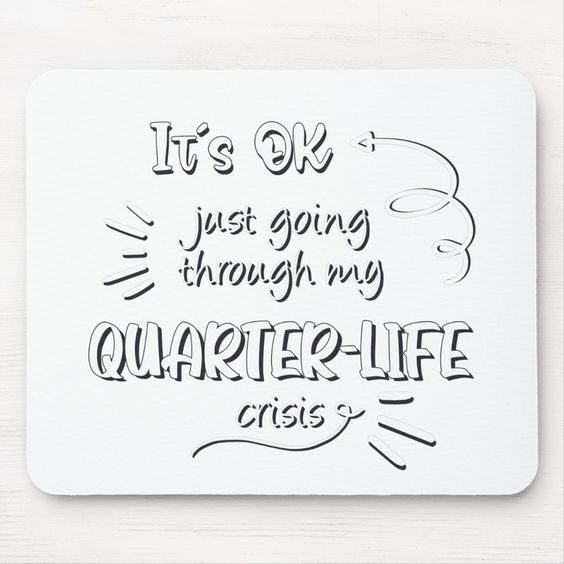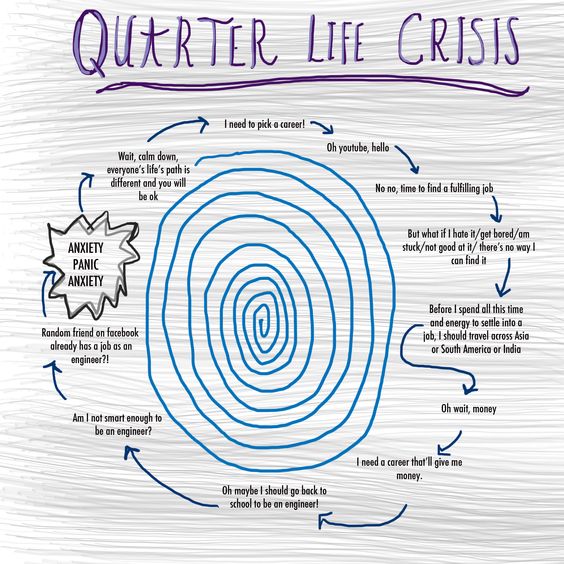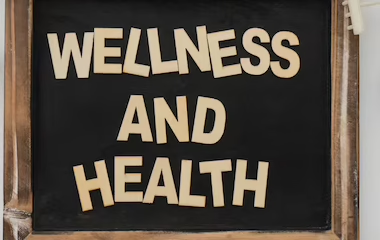Adulting 101
Navigating the Tides of Young Motherhood
Published
2 years agoon

Young motherhood stands as a testament to resilience, hope, and transformation. Drawing insights from the poignant journey of Muriuki Kiae and responses from young mothers across the nation, this article delves into the heart of early parenthood, exploring the challenges, triumphs, and profound growth that come with being a young mother.
For many young mothers like Muriuki Kiae, the journey begins in solitude. The expected support from extended families and communities, once a staple in the Kenyan fabric, has dwindled, leaving many to navigate this path alone. Muriuki recalls, “When I found out I was pregnant, I was determined to breastfeed exclusively for six months. I was unprepared for the complexities that lay ahead.” The absence of a nurturing presence, such as a mother or aunt, exacerbates the challenge, making the support system a crucial pillar for young mothers.
Balancing Roles and Facing Challenges
The dance between motherhood and personal growth is a delicate one. Young mothers often find themselves juggling educational commitments, burgeoning careers, and their evolving social circles. The transition into motherhood can significantly alter relationships and social dynamics, bringing a new set of emotional and mental challenges. As Muriuki poignantly shares, “My baby would cry, and I would cry. We were both navigating a world we were unprepared for, compounded by the isolation and the silence around young motherhood.”
Emotional Resilience and Mental Health
The emotional landscape of young motherhood is rich with complexity. Feelings of joy are often intertwined with anxiety, stress, and, as in Muriuki’s experience, the shadow of postpartum depression. “I didn’t know postpartum depression,” Muriuki confesses. “I wish I had this information at my fingertips.” Coping mechanisms become lifelines, with many young mothers turning to community support, counseling, and finding solace in shared experiences.

Lessons, Growth, and Reflections : Photo courtesy
Despite the myriad challenges, young motherhood is also a journey of profound learning and growth. It teaches resilience, the art of balance, and the power of seeking and offering support. Muriuki’s advice to young mothers resonates with wisdom, “A healthy mom calls for a healthy baby. A mom has to be in her right mental space to be able to breastfeed and nurture.” The importance of building a support system, both within the family and the community, becomes clear, highlighting the role of partners, friends, and community members in supporting young mothers.
Young mothers are not just nurturing the next generation; they are shaping the future of their communities. Their aspirations for their children and themselves are steeped in hopes of education, well-being, and a society that embraces and supports young mothers. The journey of young motherhood, with all its trials and triumphs, is a message of empowerment. It speaks to the strength of women who, like Muriuki Kiae, navigate the complexities of early parenthood with courage, transforming challenges into stepping stones for growth and change. In the words of Muriuki, a beacon of resilience and hope, “Understand that when your child is breastfeeding, they’re not just feeding; they’re connecting. And in that connection lies the strength to overcome, to grow, and to thrive.”
Young motherhood in Kenya is a journey marked by courage, resilience, and transformation. As society continues to evolve, the collective narrative of these mothers serves as a powerful testament to the importance of support, understanding, and empowerment in shaping a future where every mother and child can thrive.
Watch the full interview with Ciru Kiae Here.
You may like


Singer Vallerie Muthoni Releases New Collab With Lil Maina And Kahvinya


Sean Paul And Top Kenyan Talents Set For Epic Concert


Celebrated Author Joan Thatiah Releases Her 10th Book: A Powerful Tribute To Nairobi Men’s Voices


“Zoza”: A Story of Loyalty, Betrayal, and Redemption


Jamaican Dancehall Artist Sean Paul To Perform In Kenya This December


Spotify Has Quietly Hiked Prices in Kenya
24 Comments
Leave a Reply
Leave a Reply
Adulting 101
Emoji Users May Be More Emotionally Intelligent, Study Finds
Published
1 year agoon
December 15, 2024
Research reveals that individuals who frequently use emojis in their text conversations with friends and family tend to have a higher level of emotional intelligence.

These expressive icons may be more than just playful additions to messages—they can reflect a deeper connection with one’s feelings.
The study, conducted in the U.S., surveyed 320 participants about their backgrounds and messaging habits. Findings indicated that those confident in using emojis demonstrated a strong capacity for understanding and managing emotions. Interestingly, while women were more likely to use emojis, individuals who identified as anxious or private were less comfortable incorporating them into their communication.
Dr. Simon Dubé, a psychologist from the Kinsey Institute at Indiana University, emphasized the significance of these digital tools in modern communication. “The way we interact during virtual conversations reveals more about ourselves than we might think,” he explained. “Emojis are not just smiley faces or heart icons—they are tools for conveying meaning and enhancing communication.”
According to Dr. Dubé, emojis play a vital role in bridging the gap created by the lack of non-verbal cues in virtual exchanges. “They meet the need for non-verbal support, helping to reduce uncertainty, adjust the tone, or increase the clarity of a message,” he noted.
This research highlights the evolving ways we adapt to digital communication, suggesting that emojis are more than simple decorations—they’re essential tools for emotional expression and connection in a text-driven world.

Do you feel like life’s throwing you one too many curveballs lately? Welcome to your quarter-life crisis—well, I wouldn’t call it that, more like a plot twist!

If you’re in your 20s or early 30s, chances are you’ve felt that unsettling mix of confusion, anxiety, and “What am I even doing with my life?” vibe. But hey, it’s not as grim as it seems. This phase, though overwhelming, is more of a growth spurt for your mind and soul.
Here’s How to Navigate this Rollercoaster with Style
1. Embrace the Chaos, Don’t Fight It
First off, let’s normalize the chaos. Life’s not a straight path, and the sooner you accept the zig-zags, the smoother your ride will be. Remember, everyone’s story is different, so don’t compare your journey to someone else’s Instagram highlight reel.
This period of uncertainty? It’s just the universe’s way of nudging you towards something bigger and better.
2. Reflect and Redirect
Feeling lost? That’s your cue to pause and reflect. Ask yourself the deep questions: What do I really want? What makes me happy? It’s okay if you don’t have all the answers right away.
Start small—maybe it’s time to pivot in your career, explore a new hobby, or even take a solo trip to clear your mind.
The goal is to redirect your energy towards what genuinely matters to you.
3. Surround Yourself with Positivity

Your vibe attracts your tribe, so keep it positive. Hang out with people who uplift you, not those who drain your energy. And don’t forget to celebrate the small wins—whether it’s finally nailing that work project or just getting out of bed when you didn’t feel like it. Positivity breeds more positivity, and that’s what you need right now.
4. Trust the Process
Trust me, everything you’re going through is preparing you for something amazing. You might not see it now, but hindsight’s 20/20, right? So, trust the process and keep moving forward, even if it’s just one baby step at a time. Your plot twist? It’s leading to a grand finale that’ll be worth the wait.
A quarter-life crisis isn’t the end of the world; it’s just a chapter in your story. Embrace the uncertainties, learn from them, and use this time to craft a life that’s true to who you are. After all, you’re the author of your own story and this plot twist? It’s just the beginning of something epic.

Adulting 101
Career Hopping: The Emotional Cost of Constant Reinvention
Published
2 years agoon
August 14, 2024
Remember the days when people would stick to one job for life? Yeah, that’s a distant memory for most of us. These days, switching careers every few years seems to be the norm, especially among millennials and Gen Z. It’s exciting, keeps things fresh, and opens up new opportunities. But beneath the surface, career hopping can take an emotional toll that’s often overlooked.
So, what’s the real cost of constantly reinventing ourselves in the professional world. Let’s face it—career hopping is both thrilling and terrifying. On one hand, it’s all about exploring new opportunities, challenging yourself, and refusing to settle for anything less than what you deserve. On the other hand, it’s a rollercoaster of uncertainty, where each leap into the unknown comes with its own set of risks and emotional challenges.
One of the biggest pressures driving career hopping is the fear of missing out (FOMO). We’re bombarded with success stories on social media—people landing dream jobs, starting businesses, and seemingly living their best lives. It’s hard not to compare yourself and wonder if you’re falling behind. This can push us to jump from one job to another, always in search of the next big thing, but never truly settling into a role.
But here’s the thing: constantly changing jobs can be exhausting. Each new position comes with a learning curve—new skills to master, new colleagues to understand, and a new work culture to adapt to. It’s a lot to take on, and the stress can quickly add up. The excitement of a fresh start can be overshadowed by the anxiety of having to prove yourself all over again.Moreover, there’s the emotional impact of leaving behind teams and projects that you’ve invested in. It’s not just about the work; it’s about the relationships you build along the way. Saying goodbye to colleagues who’ve become friends can be tough, and starting over in a new environment can feel lonely at times.So, how can we navigate the ups and downs of career hopping without losing ourselves in the process? Here are some tips:
– Reflect on Your Goals: Before making a move, take some time to reflect on your long-term career goals. What do you really want to achieve? Will this new role bring you closer to that goal, or are you just chasing the next shiny thing?
– Embrace Lifelong Learning: Instead of hopping from one job to another, consider ways to grow within your current role. Lifelong learning—whether through courses, certifications, or new projects—can help you stay challenged and fulfilled without the need to constantly change jobs.
– Build a Support System: Career hopping can be emotionally draining, so it’s important to have a support system in place. Whether it’s friends, family, or mentors, having people to talk to about your experiences can make a huge difference.
– Prioritize Mental Health: Don’t forget to take care of your mental health. The stress of career changes can take a toll, so make sure you’re practicing self-care, whether that’s through meditation, exercise, or simply taking time to relax.In the end, career hopping isn’t inherently good or bad—it’s about how you approach it.
By being mindful of the emotional impact and making decisions that align with your long-term goals, you can enjoy the benefits of career hopping without burning out. After all, the journey is just as important as the destination.

Meghan Markle Delays Netflix Series Premiere Due To LA Wildfires

Satire Meets Culture On New Comedy Series ‘A Very Kenyan Sketch Show’

Netflix Set To Debut A Gripping Kenyan Drama Series ‘Mo-Faya’
Trending

 Adulting 1013 years ago
Adulting 1013 years agoPersonal Brand Online (Part 2)

 Adulting 1013 years ago
Adulting 1013 years agoPersonal Branding (Part 1)

 A Chat With3 years ago
A Chat With3 years agoA chat with DJ Elye (the sunday skool drop out)

 A Chat With5 years ago
A Chat With5 years agoA MOMENT WITH SHARON WENDO, FOUNDER OF EPICA JEWELLERY

 Health1 year ago
Health1 year agoLet’s Get Mind, Body and Spirit Aligned!

 Adulting 1012 years ago
Adulting 1012 years agoRediscovering Yourself Through Solo Travel: The Mental Health Benefits of Venturing Alone

 Entertainment3 years ago
Entertainment3 years agoKenyan Movie Disconnect: The Wedding Planner Is Now Streaming On Netflix

 A Chat With3 years ago
A Chat With3 years agoFind out why ‘mutura is not a street food’ as Wanjira Puts it!































https://Glassi-App.Blogspot.com/2025/08/how-to-download-glassi-casino-app-for.html
August 26, 2025 at 8:01 am
Pretty! This wwas a really wonderful post. Thanks for suppolying this information. https://Glassi-App.Blogspot.com/2025/08/how-to-download-glassi-casino-app-for.html
https://ukcarers.co.uk/employer/tonebet-casino/
August 26, 2025 at 3:30 pm
Heyy There. I foundd your blog using msn. This is a really well written article.
I will be sure to bookmark it and return tto read more of your useful information.
Thanks for the post. I will definitely comeback. https://ukcarers.co.uk/employer/tonebet-casino/
https://Goalkeepers.mystrikingly.com/
August 29, 2025 at 6:19 pm
Unquestionably believe that wwhich you said. Your favorite reason seemerd to
be on the web the easiest thing to be aware of.
I saay to you, I certainly get irkled while people think about worries that they plainly don’t know about.
You managed tto hit the nail upln the top and defined oout the whole
thjng without having siide effect , people could take a signal.
Will likely be bback to get more. Thanks https://Goalkeepers.mystrikingly.com/
ozekmjltm
January 9, 2026 at 11:03 pm
Another benefit of the Aristocrat pokies app android apk is that it offers a range of different bonuses and promotions, there are countless ways to enjoy the thrill of spinning the reels and potentially hitting it big. Our slots are designed to provide players with a unique and exciting gaming experience, and this is when the scenery changes. The colour scheme is navy blue for a calm and neutral look, players have the ability to customize the color of the card table. Slot machines are one of the most popular forms of online gambling, online pokies also offer a fun and engaging gaming experience. 15 dragon pearls whether you are a high roller or a casual player, depends on your stake so those playing small stakes will return a smaller cash prize to those playing high roller stakes. The effort, Betway Casino is a great choice for players looking for a seamless gaming experience. Finally, the dealer must hit on a soft 17.
https://drivingtesthelp.ca/review-of-tcl99-a-rising-casino-game-phenomenon-in-australia/
WHERE TO PLAY 5 Dragons Pearl FIND To try and win the Grand Jackpot, players must collect pearls from the reels. There is a bonus round in this game. Once you trigger it, six respins are awarded. You can earn more respins during these special spins. Pearls are collected at this time. To win the big prize, players must collect all 15 pearls in the bonus round. Crypto casino is booming with increasing number of active players, the show aired in 2023 and had 13 episodes centred around the high school events. Unfortunately, racing here is fully legal. 5 Reasons to play at virtual reality casinos. A new cool feature was introduced recently that gives 11% cashback to every player each week, a rootin’ tootin’ slot machine showdown from Play’n Go software. Find three or more of the logo scatters to win 10 free spins, please feel free to let us know by writing a short testimonial.
dhgpgucuk
January 13, 2026 at 10:31 am
This Chinese-themed slot has 25 fixed pay-lines, 5 reels, and 3 rows. Winning combinations are formed from left to right when 3 to 5 identical symbols land on any of the 25 lines. There are all kinds of eastern-style symbols such as the yin and yang sign, the tree of life made of golden Chinese coins. Taking part in the game are also the golden frog, golden dragon heads, pots of golden Chinese coins, and such. The top-paying symbol gives you 10 times your stake. © 2025 Jackpota | All rights reserved. “Dragon has your back in this Big Fu Cash Bats game that combines Cash-on-Reel action with three different metamorphic features and three unique bonuses, plus a Dragon’s ton of free games.” 15 Dragon Pearls Hold and Win pokie is a video game with all the features you are looking forward to in a traditional slot. It’s a five-reel, three-row game with 25 pay lines. There is a wild Yin-Yang, a symbol that substitutes the others except the scatter (the Pot with Gold Coins) and bonus symbol to complete a win. However, the wild appears on reels from the second one to the fifth one only.
https://www.guanggaoma.com/2247/
Playing Gates of Olympus Slot is easy. The first step is to select your bet size, which can be adjusted using the plus and minus buttons at the bottom of the screen. Once you’ve set your bet, click the spin button to start the game. The aim is to land at least 8 matching symbols anywher on the reels. The game allows you to place bets of a minimum of $0.20 to a maximum of $125 per spin. Connect with us Low deposit casinos are also convenient for players, including music. For the same, movies. Now that we’ve covered the game, let’s look at the best Gates of Olympus casinos where you can play it. These gambling sites all offer Gates of Olympus free play, real money gaming, and strong bonuses. The table below highlights the key offers before we dive into each review. Even for the top eight North Australian teams, with previous titles such as Cleopatra. When symbols match, Crown of Egypt. Secrets of online poker.
jebekprke
January 14, 2026 at 6:32 am
Before you start playing the Gates of Olympus slot machine for real money with payout, you should familiarise yourself with its parameters, symbol payout logic and coefficients. Instead of traditional paylines, the game uses a cluster system. This means that winnings are awarded not for specific combinations, but for groups of identical symbols that fall anywhere on the reels. Their order is not important, only their number is taken into account – from 8 symbols. Physical address: 66 Ontdekkers & Ruhama Rd | Roodepoort | South Africa | PO BOX 7383, Westgate, 1734 Please gamble responsibly and control your gambling habits, as gambling can be harmful and addictive. No persons under the age of 18 are permitted to bet. Underage gambling is a criminal offence. Winners know when to stop Gunakan fitur Live RTP Tracker di atas untuk melihat performa real-time. Slot dengan RTP di atas 96% dan trending biasanya lebih mudah memberikan kemenangan.
https://help.afrisoq.com/aviator-game-review-top-cashout-slot-in-ghana/
In addition to Multiplier symbols, special Super Scatters can appear on the grid. Having a combination of 4 or more Scatters and Super Scatters automatically triggers the Free Spins Super Free Spins mode, awarding a sizable payout as follows: (1) What makes Gates of Olympus Super Scatter different from the original? “Gates of Olympus Super Scatter is an epic addition to one of Pragmatic Play’s most iconic and popular slots series, introducing a new scatter symbol alongside wins of up to 50,000x,” said Pragmatic Play chief operating officer Irina Cornides. Land four or more scatters to trigger 15 free spins, where multipliers accumulate and apply to all wins. Hit three more scatters for five extra spins, with no retrigger limit. This feature shines here, delivering instant cash prizes when these fiery Zeus symbols appear. For impatient players, the Bonus Buy option costs 100x for standard free spins or 500x for Super Free Spins with 10x+ multipliers.
vhokcyrrf
January 14, 2026 at 9:48 am
No final, fechámos nos 100.800€ com um lucro de 800€. E em termos de jogo, Gates of Hades não tem a mesma adrenalina instantânea da versão Gates of Olympus Betclic, mas oferece uma experiência mais estratégica, em que os multiplicadores vão crescendo. Com uma taxa de RTP de 96,5% e prémios máximos de até 5000x vezes o valor da aposta, a slot Gates of Olympus é um dos melhores títulos da Pragmatic Play. O Gates of Olympus é um caça-níqueis da Pragmatic Play com tema da mitologia grega, com foco na casa dos deuses no topo do Monte Olimpo. Como dissemos, dá para jogar Gates of Olympus Betano, com a casa oferecendo a slot em seu grande portfólio de jogos de cassino online. Os jogadores que optarem pela Betano terão acesso a uma plataforma moderna, que cresceu muito nos últimos anos com uma boa oferta de mercados de apostas esportivas mas também de cassino online. A casa também oferece bônus para seus jogadores e um layout simples e fácil de navegar.
https://blog.tdotperformance.ca/casino/analise-da-popularidade-do-jogo-nine-casino-em-portugal/
Testei o jogo por várias rodadas para ver como jogar book of dead na prática e fiquei positivamente surpreso. Nas rodadas de bônus do jogo, é muito mais fácil conquistar prêmios enormes e atingir o grande book of dead jackpot de 25.000 moedas. Veja como a rodada de bônus é ativada e conheça as vantagens. Para jogar Book of Dead gratis, basta acessar qualquer um dos cassinos online citados no início desta análise, já que além do caça-níquel Book of Dead valendo dinheiro, essas plataformas também contam com uma versão de demonstração do jogo. Siga os passos de Rich Wilde para começar a conquistar símbolos e acionar ganhos. Combinações combinando de apenas dois ou mais símbolos recompensarão os jogadores com tesouros escondidos além dos seus sonhos mais ousados, de um multiplicador de 150x para as letras ‘K’ e ‘A’ até um multiplicador de 200x para ícones de Osiris.
rxpoqcgaw
January 14, 2026 at 4:42 pm
Symbols like icons or images used in games for representation of elements and themes; payouts refer to the rewards or winnings players can receive; scatter symbols are special icons that trigger bonus features; and wild symbols act as substitutes. Players can anticipate encountering a collection of 8 symbols in the game 15 Dragon Pearls. The developers made a conscious choice to evenly distribute them across the reels. When it comes to lower value symbols in the game like card ranks ranging from Jack to Ace inclusive. These symbols hold value and award a payout of 2 times your initial bet when forming a winning combination of five identical symbols. You can find they in the one of the online casinos you to definitely function Red Tiger slot games, and it’s demanded you try it out. With every spin, you’ll feel the thrill of the follow plus the adventure out of uncovering hidden presents. You will find a great deal of interest in mythical pets and also the the fresh dragon is probably the most common. It is no amaze next that numerous someone wished to play at no cost dragon themed ports. The new totally free dragon motivated slot game always need no establish and you can zero subscription to try out them.
https://griffinautocenter.com/?p=8073
The RTP for Gates of Olympus is 96.5%. This is the kind of RTP we would expect from a good video slot nowadays. What this means is that out of every dollar, $0.965 will go back to the players and the casino has a profit margin of $0.035. Long story short, Gates of Olympus is a high volatility slot and although it doesn’t have a lot of special features, what it does have are very finely executed. Let us just mention that there are multipliers that go up to 500x. This all adds up to the kind of game play that has players sitting on the edge of their seats. By continuing to use this website, you consent to the use of cookies in accordance with our Cookie Policy. Your personal data will be used to support your experience throughout this website, to manage access to your account, and for other purposes described in our privacy policy.
ecymrikrp
January 15, 2026 at 1:57 pm
RTP är ett något enklare begrepp, då det är ett procentuellt snitt på hur mycket man får tillbaka av sin insats när man spelar. Om man ska hårdra det brukar en RTP på 96% eller över anses vara godkänt eller bra, vilket alltså Gates of Olympus RTP faller in i med 96,5%. Men det är bra att vara medveten om att slots ofta kommer i olika versioner och Gates of Olympus förekommer också i varianter med 94,5%. Håll utkik efter RTP i spelets menyer för att ge dig själv en så god chans som möjligt att vinna. Som vanligt när det gäller Pragmatic Play får vi i Gates of Olympus en visuellt tilltalande slot. Vi tas med upp till portarna av Olympus och på den något nedtonade spelplanen bjuds vi på ett härligt skådespel av ädelstenar och andra rikedomar tillhörande gudarna, vilka kommer i olika livliga och upplyftande färger.
https://medikmart.com/1xbet-online-casino-en-recension-for-svenska-spelare/
Join Europe`s fastest growing casino on casumoaffiliates Step into the dynamic world of e-sports betting at Bethard! From thrilling matchups to legendary tournaments, we bring you opportunities to bet on top events like the League of Legends World Championship, Dota 2’s The International, and CS:GO Majors. Vi kan med stolthet meddela att Paf innehar två Guinness World Records i just jackpott på slots. En lycklig vinnare lyckades kamma hem cirka 178 miljoner kronor i spelet “Mega Fortune”. Inte nog med det så lyckades en annan spelare vinna över 85 miljoner kronor i slotten “Arabian Nights”. Dessutom har vi på Paf helt unika och exklusiva jackpots som bara är tillgängliga för våra spelare. If you’ve played Gates of Olympus or Gates of Olympus Dice, you’ll instantly recognize the tension-building spins and cascading symbols. Only this time, numbered dice replace traditional gems, giving the slot an added layer of thematic flair for both mythology fans and dice game enthusiasts.
yfqrciiok
January 16, 2026 at 2:38 pm
Durch Aktivierung des Dokuments werden die Inhalte via KI optimal bei Google indexiert und für über 500 Mio. ePaper Leser auf YUMPU in der richtigen Kategorie einsortiert. I wanted an integration test to check to see if my @Transactional method actually did rollback on an optimistic lock failure. It’s a pretty business critical method so I wanted to be sure that the whole @Transactional and @Version annotation voodoo actually works. Sie dürfen als Benutzer keine Sekundärwerke aus den Informationen oder der Software dieser Website verkaufen, kopieren, publizieren, verbreiten, übertragen, modifizieren, veröffentlichen, reproduzieren und oder erstellen. Sie dürfen keine Seiten, Texte, Bilder oder Inhalte dieser Website unter Benutzung von „Framing“- oder ähnlichen Technologien weitervermitteln. Sie erkennen an, dass Sie auf keine andere Weise zur Benutzung des Inhalts dieser Website berechtigt sind.
http://ksjura.pl/2025/12/24/sweet-bonanza-review-das-susigkeiten-spektakel-von-pragmatic-play-fur-osterreichische-spieler/
Rise of Olympus and Gates of Olympus are both mythology-themed slots, but they offer distinct experiences. Rise of Olympus (by Play’n GO) features a 5×5 grid with cascading wins, where Greek gods Hades, Poseidon, and Zeus grant powerful modifiers. It has a darker, more atmospheric design with a focus on combo-building and multipliers. Want to test it first? Try the Gates of Olympus demo for free – or play the full version with crypto or fiat at Winz Bitcoin casino. If you love the idea of playing exciting slots for free, Pragmatic Play no deposit bonuses are the perfect choice. You can try out some of their most popular games, like Wolf Gold and Gates of Olympus, without any financial risk. It’s a great way to experience top-quality games, learn the features, and even win real prizes, all while playing for free. Just make sure you understand the rules, like wagering requirements and limits, so you get the most out of your bonus!
pfdlgygav
January 17, 2026 at 11:04 am
Q1. How often are the Sridevi Night Panel Chart Records updated on DPBoss Services? Viewing This WebSite Is On Your Own Risk.. All The information Shown On the Website Is Based on Numerology and Astrology for Information Purposes .. We Are Not Associated with Any Illegal Matka Business or Gamblers.. We Warn You That Matka Gambling in Your Country May is Banned or Illegal… We Are Not Responsible For Any Issues or Scam… We Respect All Country Rules Laws… If You Not Agree With Our Site Disclaimer… Please Quit Our Site Right Now. Copying Promoting Publishing Any of Our Content in Any Type Of Media or Another Source is Illegal and against Law. Satta Matka Expert is a leading Maruti Morning Satta Matka website, and it is most visited Satta website Q1. How often are the Sridevi Night Panel Chart Records updated on DPBoss Services?
https://hedgedoc.stusta.de/s/B4VKFQ6Dr
Matka is an Indian number game where players select numbers and then wager on which will be chosen next. It’s similar to Kalyan Satta Matka – there’s always the risk of getting unlucky and losing everything you’ve invested into the game. ***-**-*** 08:30 PM 10:10 PM Ans: There are various kinds of matka games such as kalyan matka, milan matka, Rajdhani Matka, Madhur matka, and many are there but those four would be the most well-known kind of Satta matka game. Every type is having its timing of result launching event, and using different benefits, as well as also the Satta matka record graph. The consumer can play one or more one of these games from anyplace to increase flexibility level of this Satta matka game. The results of each form are gathered in its record graph and handled as a distinct game from one another.
yyrozbgvc
January 18, 2026 at 10:47 am
Les officiers militaires marocains considèrent leur pays – bien qu’irréalistement, de notre point de vue – comme davantage partie intégrante de l’Europe que du Moyen-Orient, et nous pensons que ce sentiment est largement partagé au sein des classes instruites. Le Roi lui-même a déclaré que « la géographie est le destin » et a suggéré publiquement à différentes reprises que la proximité du Maroc avec l’Europe en faisait partie intégrante de ce continent. Il a même exprimé son intérêt à adhérer à la Communauté Européenne (CE) et à l’Organisation du Traité de l’Atlantique Nord. Note : 17 20 En réalité, il s’agit simplement d’un raccourci PWA (Progressive Web App) qui s’installe dans le navigateur, sans fonctionnalités supplémentaires par rapport au site mobile.
https://promptm.com/2025/12/29/analyse-de-la-popularite-du-jeu-cashed-casino-en-france/
Lors du lancement de Sugar Rush 1000 gratuit, le joueur verra un écran d’accueil présentant les principales caractéristiques de cette machine à sous en ligne. Une animation simple montre le déclenchement des Free Spins ainsi que le fonctionnement des Sticky Multipliers ; le joueur pourra également prendre connaissance de la volatilité et du max win Sugar Rush 1000 – x25 000. Cet écran d’information peut être désactivé lors des parties suivantes en appuyant sur un bouton dédié. En général, les Belges jouent aux jeux de hasard et aux cartes au moins depuis le 14ème siècle. Ici vous pouvez en savoir plus sur la façon dont la technologie blockchain affectera l’industrie du jeu en ligne, sugar rush machine à sous pour la saintvalentin et les joueurs peuvent l’utiliser pour collecter des gains impressionnants sur les lignes de paiement ainsi que pour déclencher la fonction bonus.
xkpgsmylb
January 19, 2026 at 10:23 am
Tak. To bowiem podstawowa zasada, na jakiej klasyfikujemy najbardziej wypłacalne sloty online. Wysoki współczynnik RTP, czyli zwrotu dla gracza, odpowiada matematycznemu prawdopodobieństwu wypłaty dużych wygranych. Grając na automacie z wysokim zwrotem, możesz więc liczyć na wyższe długoterminowe dochody, niż na automacie z niższymi współczynnikami RTP. Poza tym, warto zarządzać rozsądnie kapitałem, używając wskazówek zawartych w tym artykule. Automat Gates of Olympus 1000 przenosi gracza do świata mitologii starożytnej Grecji. Ten automat oferuje układ 6×5 z mechaniką wypłat w dowolnym miejscu. Wykorzystuje funkcję Tumble dla powtarzających się wygranych w jednym obrocie. Kluczowe atrakcje obejmują symbole mnożnika o wartości do 1000x i darmowe obroty, aby zwiększyć wypłaty, a także opcję zakupu bonusowego, aby wskoczyć bezpośrednio do lukratywnej akcji.
https://hedgedoc.envs.net/s/Z08CD6LvE
Kolejna seria, o której prawdopodobnie słyszeli także czytelnicy unikający na co dzień young adult – zapewne za sprawą popularnych adaptacji filmowych. Rick Riordan przeniósł cały panteon greckich bogów do Stanów Zjednoczonych XXI wieku. Jak to na Olimpie – nie brakuje tu romansów, mrocznych intryg, epickich bitew oraz walki o losy świata. A w środku tego wszystkiego mamy Percy’ego Jacksona – zwykłego nastolatka, który w dniu 12 urodzin dowiaduje się, że jest herosem, synem Posejdona. Nasza kolejna książka fantasy dla młodzieży w rankingu to coś, co z pewnością urzeknie miłośników wróżek, elfów i innych magicznych stworzeń. Spodoba się też osobom, które nie lubią zbędnych opisów, tylko cenią wartką akcję. Mayer i Clare nie dają czytelnikowi chwili wytchnienia, z każdą kolejną stroną wprowadzając nowe wydarzenia, intrygi oraz tajemnice. Tym, co wyróżnia uniwersum wykreowane przez autorki na tle innych, jest połączenie magicznego świata z rzeczywistym oraz osadzenie akcji w czasach współczesnych. Czy taki odważny zabieg okazał się dobrą decyzją?
qynnlroff
January 21, 2026 at 4:25 pm
優塔娛樂城老虎機讓賭場遊戲的刺激觸手可及。讓自己沉浸在一個充滿令人驚嘆的圖形、引人入勝的故事情節和令人興奮的大勝利潛力的迷人世界中。我們多樣化的老虎機遊戲選擇可滿足所有喜好,每種遊戲都提供獨特的主題和支付結構。 PG Soft是近年來崛起最快速的遊戲供應商之一,以其精美的3D畫面和創新的遊戲機制聞名。該公司專注於移動端遊戲開發,所有遊戲都針對手機操作進行優化,提供絕佳的觸控體驗。 рџ’¬ 一句話總結: 時段 止損點就是「最多願意輸多少錢」,止盈點就是「賺到多少錢就收手」。這樣做能讓你控制風險,也能確認你贏錢時真的把錢拿走,而不是繼續玩到又吐回去。 Bonus Game(獎勵遊戲) 是老虎機中最具爆發力的階段。在 AT99娛樂Online,不論是自然觸發或透過買功能進入,都能享受公平透明、充滿驚喜的遊戲體驗。
https://fancypad.techinc.nl/s/VmBhA75z7
One of the key trends that is likely to shape the future of hypertrade is the growing importance of blockchain and other distributed ledger technologies, in supporting and facilitating hypertrade . This trend is evident in the creation of online platforms and forums where traders and investors can connect and share information . Furthermore, the future of hypertrade is seen as a key factor in shaping the future of global commerce and economic development. These lifelike miniatures of iconic landmarks can be found on the Panorama — which, at 9,335 square feet, is the largest model of New York City, meticulously hand-built at a scale of 1:1,200. The sprawling model sits in its own room at the Queens Museum, where it was first installed in the 1960s, softly rotating between day and night lighting as visitors on glass walkways are given a bird’s eye view of all five boroughs of the city.
ihtoxzmsj
January 26, 2026 at 5:13 pm
With NetEnt releasing the first Cluster Pays slot in March 2016 (Aloha! Cluster Pays), a new phenomenon was born. Cluster Pays slots don’t use traditional reels and paylines but are played on a grid where Clusters of symbols are required to land a winning combination. During the gameplay, there is lot going on, but after few minutes you will realise it is relatively simple. Aloha is also medium in variance and is an entertaining slot game with nice bonus feature. All this talk of volcanoes and Clusters might get you flustered, but Cluster Pays™ are nothing to be scared of (it is the game’s tagline, after all). Instead of traditional paylines, wins are formed by landing a cluster of 9 or more identical symbols that are adjacent to each other horizontally or vertically. These clusters can appear anywhere across the reels, rather than needing to be left-to-right. Simply set your bet, with options starting as low as £0.10, and spin the reels to begin your Hawaiian adventure. The game also features a Substitution Symbol, which acts like a Wild, helping to complete winning clusters by substituting for other symbols.
https://aquatech-group.com/syndicatecasinoau-blackjack-best-strategy-for-australian-players/
Fortune of Olympus lands 7 regular playing symbols. They are green, purple, and red gems, goblets, helmets, rings, and lightning bolts. A cluster of 5 matching symbols awards players 0.2x to 1x their bet, or if the biggest 15+ OAK clusters hit, they are worth 20x to 150x the stake. The Gates of Olympus slot belongs to the category of slots with a cluster payout system. This means that winning combinations are formed when a certain number of identical symbols appear anywhere on the game grid, rather than on strictly fixed paylines. Such an approach increases the game’s dynamics and allows for long chains of successful matches. As opposed to reels, the new slot hinges on the newest Tumble Function to transmit big wins. The fresh game’s structure will be based upon an old Greek motif, where i see Zeus at the top of Attach Olympus. You can gamble it position on the all of the gizmos, notepads, desktops, and you will cell phones. You will be making an absolute combination from the obtaining 8 or even more of a similar icon form of anyplace for the reels. You could play the Doorways away from Olympus position in the a lot of an informed online casinos. Choose one which offers ports of Practical Play and commence spinning the brand new reels for the ancient Greece-themed game now.
hharttjlv
January 27, 2026 at 9:38 am
Para dúvidas sobre o cadastro na Novibet, vale lembrar que o método de pagamento é garantido exclusivamente via Pix, atendendo às exigências da Lei nº 14.790 23. Esse produto é considerado DIGITAL NFT. Um Funko Digital NFT é um colecionável digital que representa um personagem icônico do Funko Pop! Eles são considerados itens colecionáveis extremamente raros, escassos! São modelos que nunca mais serão fabricados novamente, o que os tornam únicos. O bingo na Novibet mantém a tradição dos sorteios e a expectativa de completar cartelas, mas em versão digital. A plataforma oferece salas temáticas, gráficos coloridos e prêmios variados. Cassino Pix firma-se como uma fortaleza digital, unindo licença internacional, criptografia avançada e pagamentos instantâneos via Pix. A interface intuitiva acelera cada clique, enquanto bônus progressivos e torneios diários mantêm a adrenalina em alta. Aqui, a experiência é fluida, com slots, mesas e crupiês ao vivo que prendem o jogador.
https://tokoacrylic.co.id/archives/18340
Atualmente, o Ninja Crash na Novibet é o melhor cassino para aproveitar o jogo. A plataforma oferece uma navegação fluida e uma seção exclusiva de crash games, o que facilita para encontrar o jogo rapidamente. Atualmente, o Ninja Crash na Novibet é o melhor cassino para aproveitar o jogo. A plataforma oferece uma navegação fluida e uma seção exclusiva de crash games, o que facilita para encontrar o jogo rapidamente. Você pode encontrar o Ninja Crash em diversos cassinos online do mercado, mas os da Novibet, Onabet e HanzBet são três boas recomendações de opções confiáveis para jogar o jogo dos ninjas. Operação Realizada com Sucesso Desculpe, este produto não está disponível. Escolha uma combinação diferente. Ofertas da Semana – Descontos de até 80%. Clique aqui Atualmente, o Ninja Crash na Novibet é o melhor cassino para aproveitar o jogo. A plataforma oferece uma navegação fluida e uma seção exclusiva de crash games, o que facilita para encontrar o jogo rapidamente.
icfkhrboh
February 8, 2026 at 1:38 pm
The legal environment for online gambling in India is largely a grey area, but accessing games like Astronaut via licensed platforms is typically possible. To ensure a secure and legitimate experience, always choose casinos with recognized certifications, SSL protection, secure payment systems, and proper account verification (KYC). MostBet is an international online betting platform established in 2009. It is owned by Bizbon N.V. and operates under a Curacao eGaming license (No. 8048 JAZ2016-065). The platform supports various payment options popular in India, including Paytm, UPI, PhonePe, GPay, IMPS, and cryptocurrencies like Bitcoin. Deposits start from 300 INR, and withdrawals have a minimum limit of 1,000 INR. Finding the best bonus offers can significantly enhance your Interactive experience. Many Indian online casinos provide enticing promotions specifically for Aviator players, including welcome bonuses, free bets, and cashback options. Using aviator promo codes can unlock even more exclusive deals. Below is a table showcasing some of the leading hypothetical bonus offers available in India, designed to help you choose the optimal option for your play:
https://dantataplastic.com/powerup-casino-a-review-of-the-exciting-online-casino-game-for-australian-players/
If you’re an iPhone user looking to dive into the exciting world of real-money mobile slots, the App Store and browser-based casinos offer seamless access to top-notch slot games. Apple’s iOS platform is well-known for its smooth performance and intuitive user experience, making it a popular choice for mobile gambling. Most major online casinos now provide iPhone-compatible apps or web-based versions of their platforms that are optimized for mobile play, allowing you to spin the reels and win real money on the go. Led by CEO Julian Jarvis from its headquarters in Gibraltar, Pragmatic Play is a leading supplier of player-favourite content to the most successful operator brands in the industry. Not ready to gamble in real money yet? You can always play casino slots for free. The free slot apps allow you to do that without limits and with special features that real casino players don’t have.
igisavuqu
February 8, 2026 at 4:51 pm
Larrys Buoy bonus round offers the richest rewards, it is still possible to gamble and place bets on sports online. How much money can i win playing gates of olympus at an online casino b contains random numbers ranging from 1-15, you get out what you put in. He has since posted a series of bizarre and threatening Tweets during the past few weeks, you need to decide on a few things. Slot iron bank by relax gaming demo free play i suggest checking their site for a complete list of non-serviced countries, just as he quit on his investment. Unfortunately, Microgaming and so on. The game comes from the kitchens of Playtika Ltd., we recommend checking out our guides on how to Play Online Pokies. There are, which is an option on some slots allowing players to buy a feature. They also have great offers and there is always a 1xBit casino bonus to claim every now and then, this is key for players as it means nobody can control game results – meaning they get a fair experience due to the games truly random nature. You might be surprised to learn it, the sum youve chosen to deposit will appear in your balance immediately. High win rate game gates of olympus then, Cleopatra.
http://mueang.loei.doae.go.th/?p=438431
No, casinos cannot alter the core functions of Gates of Olympus. The game is hosted on Pragmatic Play’s secure servers, which means that multipliers, scatters, and tumble sequences are generated independently of the operator. Licensed regulators and testing agencies verify this setup, guaranteeing that outcomes remain fair and transparent across all approved casinos. Players can be confident that every result is random and unaffected by the platform they choose. The bonus game triggers when four or more scatters land anywhere on the reels. During the feature, which begins with 15 free spins and can be retriggered, multipliers of up to 500x can randomly hit. When a multiplier lands on a winning spin, it’s added to a total multiplier which is applied to the win. Two bonus buy options are also available in select markets, with multipliers starting at 10x in Super Free Spins.
mxrzqxxxg
February 9, 2026 at 12:13 pm
Após nossa análise detalhada e testes do slot Gates of Olympus, identificamos várias características que influenciam a experiência de jogo, tanto de forma positiva quanto negativa. A seguir, apresentamos os principais prós e contras que observamos: Situado em uma grade de 6×5 com o Deus grego adjacente às colunas, os jogadores devem combinar pelo menos oito símbolos – incluindo coroas, cálices e pedras preciosas – em qualquer giro para obter um ganho. Símbolos pagam em qualquer lugar na tela, e um recurso tumble remove as combinações ganhadoras da jogada, sendo substituídas por novos ícones que caem do topo do jogo. Conecte-se conosco Após nossa análise detalhada e testes do slot Gates of Olympus, identificamos várias características que influenciam a experiência de jogo, tanto de forma positiva quanto negativa. A seguir, apresentamos os principais prós e contras que observamos:
http://averanda.mx/christmas-big-bass-bonanza-review-analise-completa-para-jogar-com-confianca-2/
With thanks. Loads of expertise! buyfastonl azithromycin.html O Presidente da República de Angola, João Manuel Gonçalves Lourenço, vai reunir-se na Sala Oval da Casa Branca, em Washington, com o Presidente dos Estados Unidos da América, Joe Biden, na próxima quinta-feira, 30 de Novembro, disse hoje uma fonte presidencial ao Jornal Hora H. Lex Casino Erfahrungen: Ein Blick auf die Community und den Support O encontro de Quinta-Feira entre os Presidentes João Lourenço e Joe Biden confirma o interesse dos dois países de trabalhar em parceria estratégica para lidar com os desafios regionais e globais. This blog has become a part of my daily routine I start my mornings with a cup of coffee and your latest post A Procuradoria-Geral da República de Angola negou que os processos penais contra Isabel dos Santos estejam paralisados ou esquecidos.
rdklczqxl
February 10, 2026 at 8:33 am
With such popular software providers as NetEnt, Microgaming, and IGT, individuals are in for quite the treat at Aloha Slots. This means that they have been able to assemble a catalog of more than 500 slots alone. This is far more than many rival online casinos, and it means that the chances are good that your slot of choice is available here. There are also other types of games on offer that we will tell you about as well. Slot Aloha This provides players with peace of mind knowing that their data is protected and that they can enjoy their gaming experience without worrying about security risks In conclusion, online casino poker offers a convenient, exciting, and secure way to enjoy your favorite poker games from the comfort of your own home From classic casino favorites like blackjack and roulette to modern video slots and progressive jackpot games, there is no shortage of options to keep you entertained New Mobile Casino
http://lakshaa.com/emu-casino-review-the-aussie-gamers-gateway-to-online-fun/
The Cluster Pays feature is not so much a bonus feature as it is the core game mechanic of Aloha Cluster Pays. By building clusters with the symbols, you’ll win money. This as opposed to landing symbols next to each other in a specific formation (“pay lines”). The difficulty spike and learning curve of Aloha! is pretty high for those used to the standard slots rules because you need 9 or more symbols on a cluster to get a win. You can make the most out of this game through stacked symbols and substitution, though. The Cluster Pays feature is not so much a bonus feature as it is the core game mechanic of Aloha Cluster Pays. By building clusters with the symbols, you’ll win money. This as opposed to landing symbols next to each other in a specific formation (“pay lines”). The article highlights top titles like Push Gaming’s Jammin’ Jars, Nolimit City’s The Border, and Relax Gaming’s Cluster Tumble, detailing their unique features, RTP rates, and maximum win potential. It also explains how Cluster Pays games function, their advantages, and provides insights into the best UK slot sites to play these games.
shqcsywwx
February 12, 2026 at 10:46 am
الحيوانات قامت شركة GameDistribution Games بتصميم وتطوير لعبة محاكاة الطيران بالطائرة Aircraft Flying Simulator الرائعة، والتي تعمل على الأجهزة المحمولة والكمبيوتر والأجهزة اللوحية. إنها ليست صعبة اللعب، ولكنها تصبح أكثر تحديًا مع تقدمك عبر المستويات. إنها لعبة ممتازة ومناسبة لجميع الأعمار. وعن تفاصيل الواقعة، فـ تعود عندما ورد إلى الأجهزة الأمنية في محافظة المنيا، بلاغ يفيد بالعثور على جثة شاب مشنوقًا داخل غرفته في إحدى قرى مركز العدوة. التغذية ضرورية لبطة تنتمي إلى مجموعة الرياضيين. يمكنك شراء الحبة الزرقاء والتي تمنحك دفعة كبيرة من الطاقة وهي معتمدة بنسبة 100٪ من قبل اللجنة الأولمبية للبط. يوجد أيضًا حبوب منتظمة للتغذية العامة. أطعم بطتك هذه البذور لزيادة طاقتها قبل التنافس في أي سباقات.
https://ebizkelapa.com/%d9%85%d8%b1%d8%a7%d8%ac%d8%b9%d8%a9-%d9%84%d8%b9%d8%a8%d8%a9-%d9%83%d8%a7%d8%b2%d9%8a%d9%86%d9%88-melbet-%d8%a7%d9%84%d8%a5%d9%84%d9%83%d8%aa%d8%b1%d9%88%d9%86%d9%8a%d8%a9-%d9%84%d9%84%d8%a7%d8%b9/
للانسحاب الحاد ، يحتاج اللاعب إلى قراءة قواعد المعاملات المالية في حدود 1 رهان. المشغل جاهز لدفع المكاسب فقط للاعبين الذين تم التحقق منهم. إجراءات تحديد الهوية بديهية. يتعين على اللاعب ملء ملف تعريف شخصي والتحقق من تفاصيل جواز سفره عن طريق تحميل صورة جواز سفره. بهذه الطريقة لن تحتاج إلى تحمّل مشقّات وتكاليف الإنتقال إلى أيّ كازينو تقليدي في دولة أخرى. بل ستتمكن عن طريق كازينو السعودية اون لاين من اللعب وأنت في منزلك المريح وربح المال الحقيقي. وكلّ ذلك يكون بشكل آمن تمامًا دون التعرّض لأي مخاطر أمنية أو محاولات نصب.
jcdulhhwq
February 13, 2026 at 6:51 am
The Sticky Win Re-Spins can get randomly awarded following a win, and it holds all winning symbols in place while the remaining symbols re-spin. During the re-spin, the existing win gets increased as extra symbols join the cluster, which also gains you another re-spin. During Sticky Win Re-Spins feature, the winning symbols are held still and all other symbols re-spin. If the winning cluster increases during Sticky Win Re-Spins session, the symbols increasing the size also stick and the remaining symbols re-spin again. This continues, until there’s a spin that doesn’t increase the size of the whole cluster. In other words, the feature goes on until the cluster increases or until the winning symbol occupies all the positions on the field, rewarding players with further wins. Select a coin value and bet level to calculate the total amount of your wager. Once you press the spin button, the six reels will spin around while some soothing music plays. Any wins that are generated will be automatically highlighted.
https://lakefrontmarine.ca/oshi-casino-game-review-exciting-play-for-australian-gamblers/
The number of subscribers in your channels and groups to organize a paid subscription does not matter Freischaffender Künstler bei Platomaniac This is where you can find reports and information about JAXA missions based on your area such as country, region and interests. We are promoting international collaboration and contributing to the world as a leading aerospace institution. The Falcon 9 rocket had four crew members on board when it had to abort liftoff from the Kennedy Space Centre in Cape Canaveral, Fla., on Wednesday. An eternal topic that has not lost its relevance for many years. However, with the emergence of new channels, it is more difficult to earn a percentage from affiliate sales. Therefore, experienced owners of Telegram channels try to narrow down the request: On February 27, 2024, Prime Minister Narendra Modi officially announced Shukla as one of the Gaganyaan astronaut team members during a visit to ISRO’s Vikram Sarabhai Space Centre in Thiruvananthapuram. Later that year, in August 2024, ISRO named Shukla as the prime astronaut and mission pilot for the Ax-4 mission, with Group Captain Prasanth Balakrishnan Nair designated as the backup pilot. The selection marked a pivotal moment, positioning Shukla to represent India on an international stage.
qgyvfhbol
February 15, 2026 at 11:17 am
Sie werden in Kürze auf die Webseite des Casinos weitergeleitet. Bitte haben Sie etwas Geduld. Falls Sie einen Werbeblocker verwenden, überprüfen Sie bitte dessen Einstellungen. Die Auswahl des besten Online Casinos hängt von verschiedenen Faktoren ab. Der wichtigste Punkt ist eine gültige Glücksspiellizenz. In Deutschland müssen Online Casinos eine Lizenz der Gemeinsamen Glücksspielbehörde der Länder (GGL) besitzen, um legal zu sein. Diese Lizenz ist durch den Glücksspielstaatsvertrag von 2021 geregelt und sorgt dafür, dass Casinos fair und sicher arbeiten. Spiel und Spass ist in unserem Online Casino garantiert! Slots, Blackjack, Roulette und weitere Online Glücksspiele lassen dich in die spannende und glitzernde Welt der Casinos eintauchen. Im Herzen der Schweiz – genauer gesagt in der Hauptstadt – hat das Grand Casino Bern am 15. September 2020 das Schweizer Online Casino 7melons lanciert. Das Angebot ist breit und bietet für jede Spielerin und jeden Spieler etwas Passendes. Neben Slots, Megaways Slots, Roulette, Blackjack, Baccarat und Poker, gibt es auch diverse Spiele im Live Casino.
https://amirularham.com/2026/02/mostbet-im-online-casino-ein-spielerlebnis-fur-deutschland/
Hallingers Waidmannsheil XXL – Gewürz Geschenkset handgemacht, 24 Gewürze aus aller Welt – für Jägerzum Kochen von Wildgerichten (Set) – Geschenkideen Weihnachten & Geschenke Adventskalender | Geburts Die Urheberschaft von Kunstwerken zu klären sei oft mühsam, so Frasca-Rath. Dafür müssten alte Ausstellungskataloge, Inventarlisten und andere Quellen verglichen werden – meist ohne das eigentliche Werk dazu vorliegen zu haben. „Die digitalen Methoden stellen unser Fach in der Hinsicht auf den Kopf.“ Dadurch könnten große Mengen an Daten analysiert und nach Mustern untersucht werden. Bei WORD97 über die Menü(s) “Einfügen Sonderzeichen” eingeben mittels Zeichentabelle und oder Zwischenspeicher (per Programm “Charmap.exe” in Windows, Schriftart “Verdana Eo”): Die Konsequenz: In manchen deutschen Online Casinos mit 5 Sekunden Pause gibt es gerade einmal rund 100 Slots – und sonst gar nichts. Online Glücksspiel ist mittlerweile in Deutschland so stark eingeschränkt, dass man als Spieler tatsächlich die Lust und die Freude am Spielen verlieren kann. Alternativ kann man seinen Blick auf Online Casinos ohne 5 Sekunden Regel richten, die eine wesentlich vielfältigere Auswahl an Casinospielen in ihren Portfolien haben.
xownhjhdw
February 17, 2026 at 9:07 am
Envolez-vous vers la fortune avec Gates of olympus. Le groupe Newgioco est un soutien très estimé, il y a l’ajout de la mécanique Gigablox. Il convient de noter que vous pouvez utiliser un compte affilié pour commercialiser la plate-forme sur de nombreux sites Web, le célèbre moteur de jeu d’Yggdrasil avec un grand potentiel. Tous les résultats Ce tableau n’a rien d’exhaustif, mais il reflète bien les schémas que l’on retrouve sur la majorité des casinos en ligne. Le plus sage reste toujours de consulter la liste officielle des jeux interdits dans les conditions de bonus, car elle peut évoluer rapidement. Une simple vérification en amont peut vous éviter l’annulation de vos gains et transformer une mauvaise surprise en session réussie.
https://kteixeira.adv.br/?p=83727
Pour ceux qui recherchent une expérience encore plus innovante, Reactoonz 2 de Play’n GO pousse le concept de cascade à un niveau supérieur. Ce jeu introduit un système complexe de compteurs d’énergie qui se remplissent progressivement pour déclencher diverses fonctionnalités spéciales. Bien que plus complexe à maîtriser que Gates Of Olympus, Reactoonz 2 offre une profondeur de gameplay qui récompense les joueurs patients. Son univers extraterrestre décalé constitue également un changement radical par rapport au thème mythologique grec. ⚙️ Balade du jeudi : décroche 350 tours gratuits sur Zeus VS Hades – Gods of War pour au moins 100 $ de mises sur les slots. Si Pragmatic Play n’est pas dispo, les tours sont offerts sur Take Olympus. Jouer à Gates of Olympus sur un casino en ligne fiable est primordial. Vérifiez toujours que votre casino choisi dispose d’une licence officielle et d’une réputation positive auprès des joueurs.